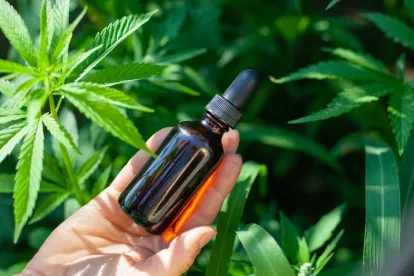Welcome to the latest installment of the Editors’ Roundtable, in which our editors – Whitt Steineker, Jay Wright, Hunter Robinson, and Slates Veazey – discuss cannabis issues in the news and take a stab at where the cannabis industry is going in the future.
Whitt Steineker (WS): Oh, boy. We have a Farm Bill coming later this year. The 2018 Farm Bill caused an explosion in the hemp industry and almost single-handedly put our little Cannabis Industry team on the map. This Farm Bill should be equally, if not more, consequential than the last. We have Delta-8 THC and other isomers. We have synthetic hemp that was recently deemed illegal by DEA. We have CBD in food and beverages, which are currently prohibited by FDA. We have the difference between industrial hemp and cannabinoid-based products, among many other issues. What do you guys think will be the most important issues?
Jay Wright (JW): I’m sure this will be a widely shared view, but I’m most interested in seeing how Congress deals with components of the cannabis plant other than THC Delta-9. The industry has identified and isolated hundreds of cannabinoids that were little-understood or studied just five years ago, and we’ve seen states take a patchwork approach to regulating or banning some of these newfound chemicals. Ideally, we’d see Congress preempt state laws related to individual cannabinoids (CBD, THC-A, Delta-8, Delta-10, etc.), though that may be shooting for the moon. Perhaps the second-best option would be for Congress to make no changes to the existing laws, keeping the playing field level for the next five years.
Hunter Robinson (HR): The most hot-button topic is how to deal with hemp-derived cannabinoids that have a psychoactive effect, such as Delta-8. The longest-simmering issue is the FDA’s continuing failure to enact a regulatory framework for CBD products. Perhaps the most consequential is how to deal with “in-process” hemp that temporarily exceeds the 0.3% THC limit.
Slates Veazey (SV): Not to punt here, but I think Jay and Hunter hit on all the top issues. Congress needs to address each of these important issues with the specificity and clarity needed to guide state agencies when enacting regulations on the topics. Uniformity and consistency are badly needed. That was probably true in 2018 but Congress, perhaps understandably, did not have a clear view of exactly how large the hemp industry would become and how important it would be to have a uniform set of rules across states.
WS: Will we see, as many expect, an effort by the industrial hemp operators to distance themselves from the cannabinoid-based operators such as CBD companies, Delta-8 companies, and the like? For example, I hear industrial hemp operators making a point that they do not make health claims or market euphoric effects. If we do see that line of argument, what are the pros and cons of establishing that distance?
JW: On its face, it seems fairly obvious that companies utilizing the cannabis plant for its physical – rather than chemical – characteristics, pose different risks to end-users than companies making ingestible products. Perhaps the best approach would be for Congress to step in and draft laws governing the ingestible products, which my colleagues have noted the FDA has effectively refused to regulate due to current statutes.
HR: I think the pros of providing distance between industrial hemp and the CBD side far outweigh the cons. Most reputable CBD, Delta-8, etc. companies already subject their products to rigorous testing for potency and safety, provide QR codes with certificates of analysis, accurately label their products, and age-gate their websites, even in states where some or all of that isn’t specifically required. Those types of companies would welcome reasonable regulations to even the playing field against their less scrupulous counterparts in the CBD/Delta-8 world.
But imposing stricter regulations aimed at increasing product safety and consumer awareness for ingestible hemp products would place a severe burden on industrial hemp producers without any corresponding consumer benefit. It’s hard to argue that a company producing hemp concrete should be regulated in the same way as a company producing Delta-8 edibles. But segregating the industry into discrete buckets with different laws applying to each bucket will be a heavy lift. I’m not sure if Congress has the willpower to take that on in this Farm Bill.
SV: Answering these questions is much easier when I go second (or third) and the person answering before me (this time, Hunter) provides such thoughtful responses. I completely agree that industrial hemp producers should not be subjected to the same types of rules and requirements applicable to CBD/Delta 8 companies. Some degree of distance is only reasonable since the end products have completely different intended uses and the manufacturing processes differ so much.
As so many components of the hemp and cannabis industries are compared to alcohol, I’ll do that here. Ethanol, for good reasons, is not universally regulated in the exact same manner, no matter the intended use. Obviously, ethanol used in drinks fit for human consumption is regulated differently than ethanol used for industrial methylated spirits, fuel, or as a solvent. Hemp should be no different.
WS: Although they have historically been aligned against government prohibition, there appears to be a widening rift between marijuana operators and hemp operators. This is true particularly for hemp products that produce some type of euphoric effect. What role, if any, do you expect the marijuana lobby to play in the debates over the Farm Bill’s provisions?
JW: It would probably devastate the nascent hemp industry to ban cannabinoids that produce euphoric effects, and I’m hopeful that the collective industry doesn’t push for such a change. Again, I would love to see Congress either step in and explicitly approve and regulate such cannabinoids to get around the patchwork of state laws that are emerging, or to take no action on cannabinoids and leave the status quo in place to allow the cannabis industry to continue to thrive and develop.
HR: I expect the marijuana lobby will put most of their effort into pushing for a ban on cannabinoids that produce a euphoric effect, like Delta-8.
SV: I again agree with Hunter. Something else I expect, though, is a healthy dose of interest by movers and shakers in the cannabis industry regarding the regulation of ingestible hemp products. I suspect that the framework for regulating edible cannabis products, including the increasingly popular cannabis-infused drinks, could be sketched out through the new Farm Bill as applicable to ingestible hemp products. Whether Congress gets down to those details or simply instructs the FDA to do so, this is undoubtedly something many in the cannabis industry will closely follow.
WS: When it’s all said and done, do you think hemp operators on the whole will view the upcoming Farm Bill as a net-positive or a net-negative. And why?
JW: Of course, the devil will be in the details, and we haven’t seen much other than speculation about what the Farm Bill could do to (or for) the hemp industry. In a perfect world, Congress provides some rules of the road for ingestible products or instructs the FDA to do so. I’d also note that while our readers are likely laser-focused on hemp-related issues, this is a relatively small sliver of the bill that sets forth our nation’s broad agricultural policies for the next half-decade, so we can’t discount the possibility that Congress makes relatively few changes to the hemp provisions. While that wouldn’t be ideal, it would still allow existing operators and new entrants to continue to grow, process, and sell hemp-derived products as they have been doing for the past five years. Perhaps that’s not such a bad thing.
HR: As our resident optimist, I’ll say net-positive. Codifying that “in-process” spikes above 0.3% THC are allowed would cause the hemp industry to breath a sigh of relief. And allowing hemp-derived, psychoactive cannabinoids while regulating their production and sale seems like a good compromise that would benefit the hemp industry. Going the other way on either of those issues could be catastrophic to the burgeoning hemp industry that Congress created through the 2018 Farm Bill. With the economy teetering right now, I hope that Congress is incentivized against dealing death blows.
SV: I want to take a position contrary to Hunter, but I can’t do it. I struggle to see how any hemp operator that already plays by the rules would not welcome a revamped Farm Bill that clarifies the several ambiguities that presently exist. And, not to beat a dead horse, but what this Farm Bill does in terms of defining the FDA’s role in the industry can’t be understated.







 />i
/>i

